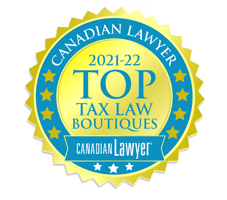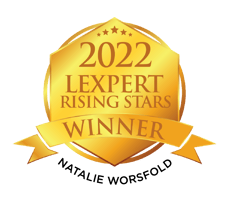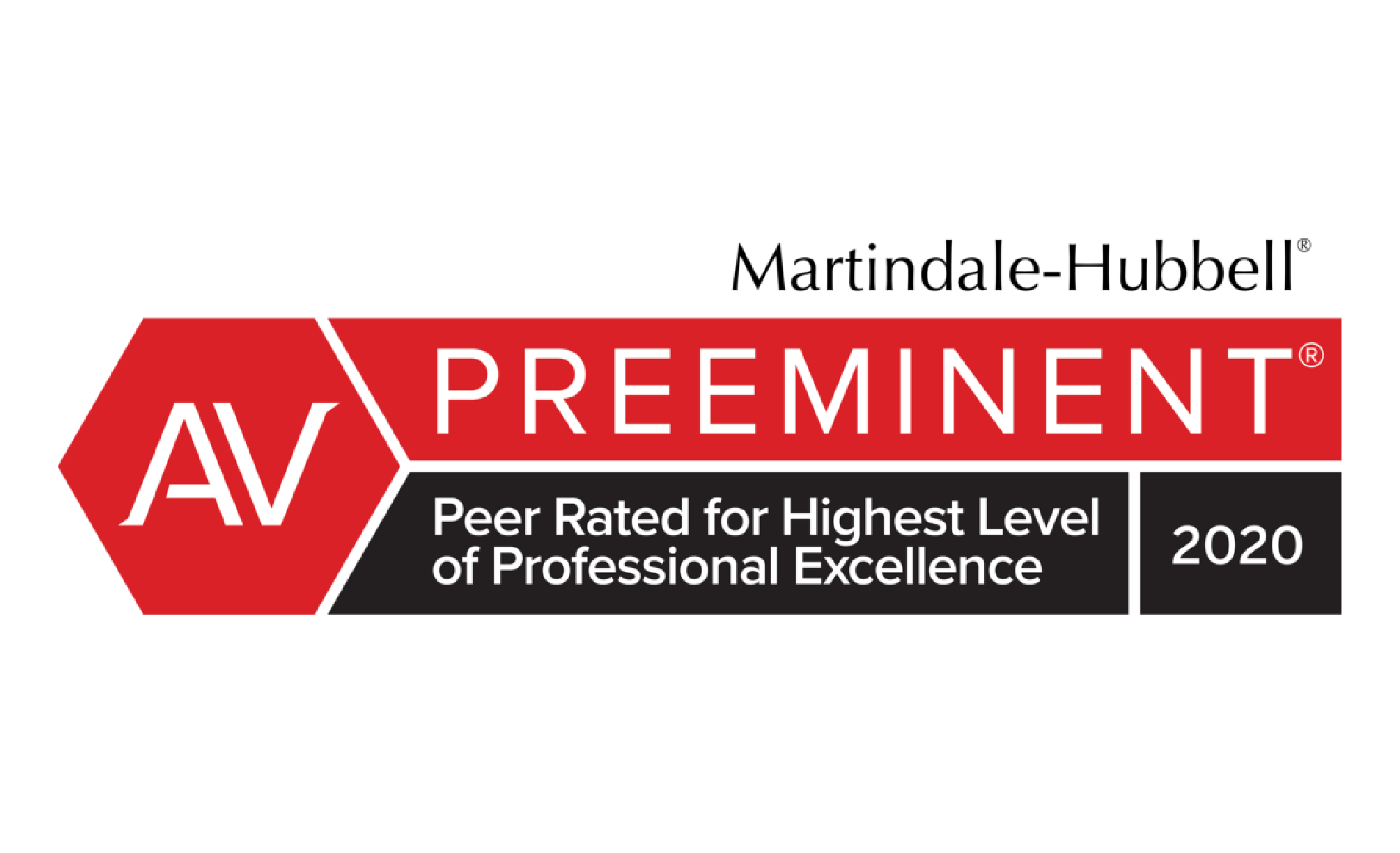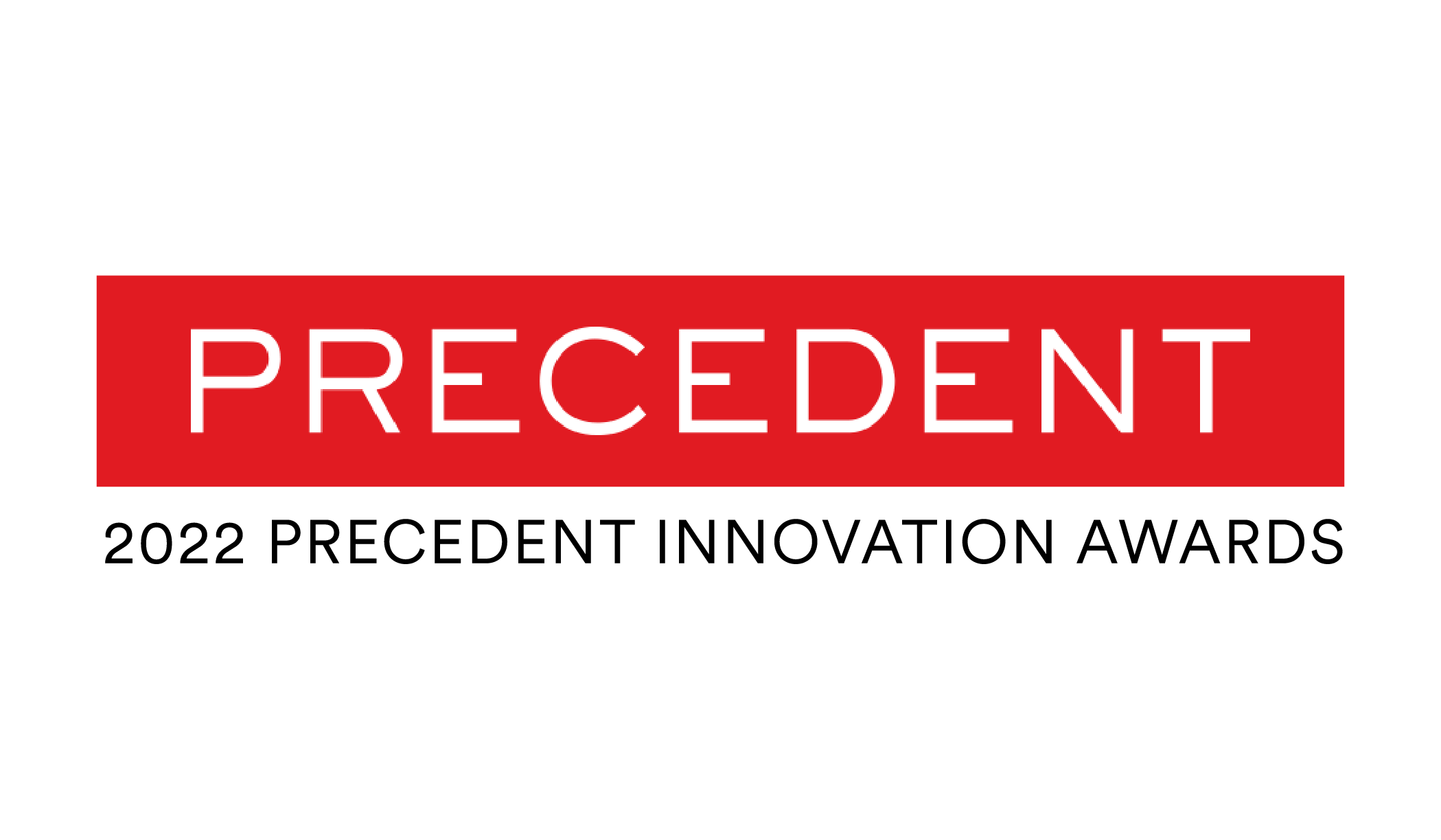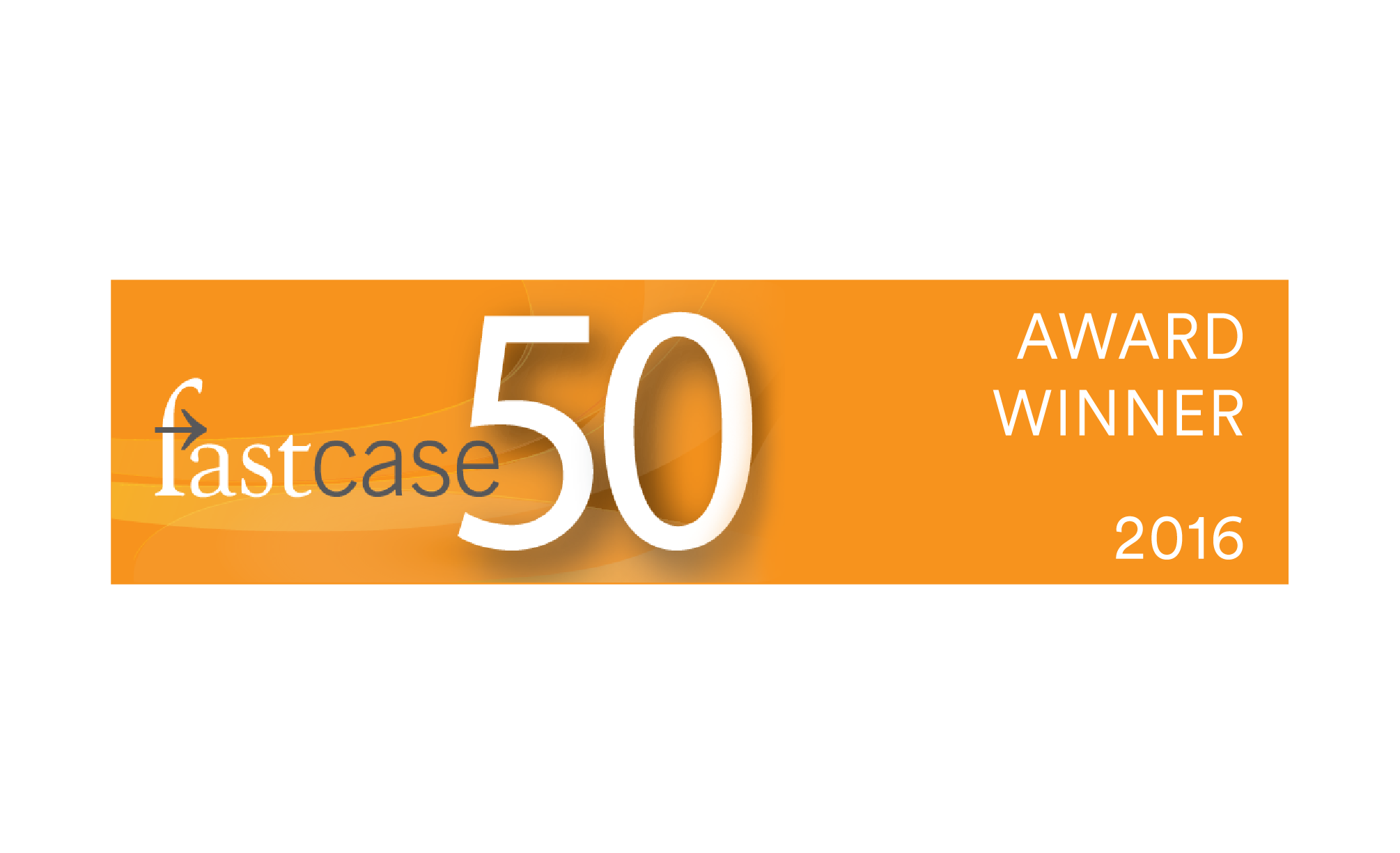
Good lawyers are good writers. In this episode, Peter and Natalie speak to Ivy Grey about techniques and technologies that will help make you a better writer and a better lawyer. Peter, Natalie and Ivy explore the technology and training methods that will put you in a position to streamline your writing, win more, and move up the ranks.
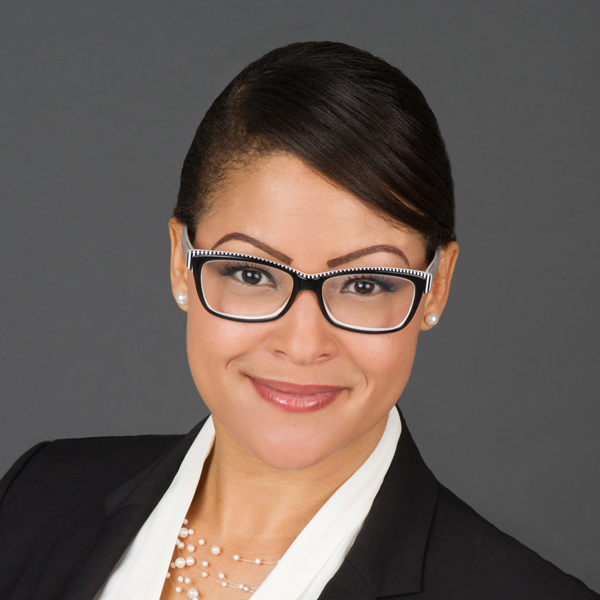
Ivy Grey is a legal tech entrepreneur, well-regarded writer, and former practicing lawyer. Before making her transition to full-time legal tech in November 2018, she spent ten years practicing corporate bankruptcy law. Now, Ivy is the Director of Business Strategy for WordRake, the creator of American Legal Style for PerfectIt, and an advisor to Intelligent Editing Ltd. She received her LL.M. from St. John’s University School of Law and J.D. from the University of Houston Law Center.
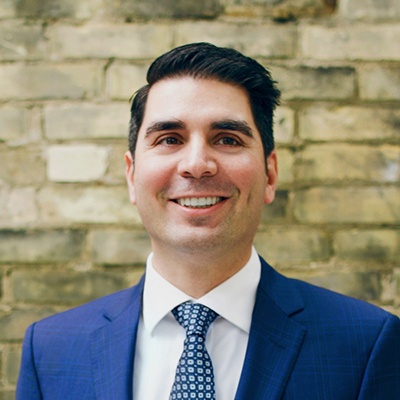
Peter Aprile is a senior lawyer specializing in tax dispute resolution and litigation. His vision as Counter’s founder and his everyday role at the firm are one and the same: to be an agent of change, uncovering opportunities and developing strategies that achieve more than anyone expected. A creative thinker, Peter studies problems from all different angles to find what others have missed. He’s also convinced that he likes winning more than most people.
Different people describe Peter in different ways. At the CRA and the federal Department of Justice, the word relentless comes up quite a lot. Admittedly, so does the word a**hole – but it’s often said with a certain grudging respect, if not affection. Peter’s clients call him a saint. Well, some of them, anyway. His colleagues describe him as empowering and harddriving, but fair. Peter’s friends call him loyal. His wife describes him as a lot to deal with, but worth it. Peter encourages his young daughter and son to call him “The Big Homie,” though with limited success. His mother describes him with the single word mischievous – before going on to complain that he should call more.

Natalie is a tax lawyer who represents individual taxpayers and owner-managed businesses in disputes with the Canada Revenue Agency (CRA). She also successfully challenges CRA decisions denying taxpayer relief and helps facilitate applications under the Voluntary Disclosures Program.
But what you really need to know about Natalie is that she’s a tax litigator with heart. When she takes a case, it’s not out of technical interest – it’s because she cares. And if she believes the government has got something wrong, she won’t stop until it’s been put right. She’s fierce.
Natalie is the co-architect behind many of Counter’s process workflows, software and data analytics systems, as well as our comprehensive knowledgebase (loving named Hank). And when it comes to preparing cases, she’s Counter’s secret weapon – happiest when elbow-deep in evidence, meticulously building creative solutions to seemingly impossible problems. Because the fact is Natalie sees things that other people don’t.
Natalie’s family and friends describe her as loyal, selfless, understanding and fun. They also mention stubborn. To her Counter colleagues she’s a combination of stellar brainpower and contagious enthusiasm who elevates the game of everyone around her.
Practices
Tech, Tools & More
- Working in Reverse
- 5 Kinds of Errors to Check in Legal Editing
- 5 Kinds of Errors to Check in Legal Proofreading
[0:00] [background music]
Peter Aprile: [0:08] Hi, and welcome to "Building NewLaw," Canada's first and only CPD‑accredited podcast. It's hosted by me, Peter Aprile, and my colleague, Natalie Worsfold.
Natalie Worsfold: [0:16] In each episode, we interview lawyers, legal technologists, and other like‑minded people at the forefront of NewLaw.
Peter: [0:15] We hope that the podcast connects the NewLaw community and helps us all learn more about the approaches that are changing the way that we practice law.
Natalie: [0:34] To learn how you can use this podcast to satisfy your law society's CPD requirements, visit our website at countertax.ca/bnlcpd. That's countertax.ca/bnlcpd.
Peter: [0:40] Enjoy the show.
Announcer: [0:41] The Building NewLaw Podcast is supported by Counter Tax Lawyers, a new type of tax controversy and litigation law firm. To learn more about Counter, go to countertax.ca.
Natalie: [1:00] Today, we're speaking with Ivy Grey. We're chatting with Ivy because she is super smart, has tons of insight about legal innovation and culture change, and she makes amazing tools that make legal writing better.
[1:17] Ivy has a background in journalism and marketing. She spent 10 years practicing bankruptcy law before she made the switch last November to dedicate herself full‑time to a career in legal tech. Ivy was named as one of the AVA's women of legal tech and recognized in the Fastcase 50 last year.
Peter: [1:33] Ivy's currently the Director of Business Strategy for WordRake, one of the amazing tools that Ivy's helping develop. She's been an advisor for PerfectIt, where she created the American Legal Style for the perfected writing tool, which we are huge fans of, and it's the thing that made us fall in love with Ivy.
[1:49] She frequently writes all over the Internet, including for Above the Law, where she spreads her amazing tips for writing. Here's our interview with Ivy.
[1:58] [music]
Natalie: [2:03] Ivy, thank you so much for joining us today. I wanted to jump right in and chat with you. Part of the reason we're so excited to talk to you is I know you're on a quest to make lawyers better writers, which is something that we find like it's really important to the two of us. And I think it's something that isn't talked about even nearly enough.
[2:21] So, before we jump into what you're doing with legal software and things like that, I really wanted to start with a basic question, which is how did you go from being a top‑class lawyer to creating this type of legal software?
Ivy Grey: [2:33] It was a circuitous route and not at all part of my plan, and it involves dancing.
Peter: [2:38] Naturally.
Natalie: [2:38] [laughs]
Ivy: [2:38] So it also involves my other favorite thing, whiskey. So I was working on my LLM thesis. I have an LLM in corporate bankruptcy.
[2:49] And I had reached the end. And a friend that I had from dance said to me, "You know, we've known each other all these years, and you've never tried my software. It does consistency checking. I really think that you'd love it. Run it on your thesis."
[3:07] And I said, "No, no, no, I'm perfect. I don't need that." And he said, "Yeah, you do. Everyone needs that."
Natalie: [3:13] [laughs]
Ivy: [3:14] So I bet him a high‑end bottle of scotch that his software wouldn't find any errors in my thesis.
Peter: [3:23] Nice, very nice.
Ivy: [3:25] And, if I lost, I would have to pay him the bottle of scotch, and I'd have to work for him. So, I lost that battle.
Natalie: [3:34] [laughs]
Ivy: [3:34] And I found errors, and I came back and I gave him an entire list of things that I think the software could have done better so that it would've worked in a legal setting. It had already been out on the market and widely adopted by professional editors, and publishers, and copywriters all over the world, but lawyers were not so into it.
[3:59] So I gave him this five‑page document or so about all the things I thought it could fix. And he said, "Oh yeah? Well, why don't you join me?" And that's how I got started working on PerfectIt, which was my first legal writing software company.
[4:15] I am still part of the PerfectIt team. I'm an advisor, and I'm the creator of American Legal Style. But, now, I have also joined WordRake, and that is where 99.9 percent of my time goes. So that's my story.
Natalie: [4:31] That's phenomenal. I love that. And I've used both PerfectIt and WordRake, and I can laugh or I can picture the face of the person you were talking to when you said, "They're not going to get anything when they go through my thesis," because I don't think I've ever put a document through and not found something in there.
Ivy: [4:47] I know. I know.
Natalie: [4:49] What is about good writing that's important?
Ivy: [4:51] Good writing is important because it conveys your ideas and documents your plans. When it is muddled, or unclear, or inconsistent, then writing raises more questions than it answers, and that is not something that you want.
[5:13] So everyone should spend more time making sure that every word in their document conveys meaning. Every piece of punctuation is correct. Everything that you say is consistent. And that, if you have anything that is inconsistent, it's intentional, not just artless variation.
[5:34] Often what the world sees is our first and only draft. If we edit and review things a few times, I think we could begin to see how others might misinterpret it, and we can go back and fix that. But if we bang it out and send it on, then there's a high likelihood that we've left a lot of room for ambiguity.
Natalie: [5:56] One of the things I've really enjoyed particularly about WordRake is going through and looking for, "Where have I blabbered on so much?" and highlighting to me, "Why did I do that?"
"[6:06] Oh, it's because I'm not clear either on what I'm communicating, or I don't believe in the strength of the words I used initially," I always find.
Peter: [6:13] I find that in most cases it's that thinking isn't clear. The question is, "Are you writing because you have an idea fully formulated or your thinking is clear, so you're at a point that you can clearly communicate that and persuade? Or, are you writing as a method to actually clarify your own thought?"
Ivy: [6:29] Right, and I think a lot of people are afraid to throw out most of what they write. When, in reality, you should throw out most of what you write. It's not wasted effort.
[6:42] The goal is to communicate what you intend, not to save as many words from the trash heap as possible. So if you end up rewriting everything, but it is clearer and people are ready to accept your proposition, then you've won. Who cares if you threw out seven prior pages of words?
Peter: [7:06] It's almost like a sunk‑cost bias. And what I find, and I wonder what you find, but I think people underestimate what it takes to write well, and the amount of time it takes, and the amount of drafts that most people who write well actually invest. Do you find the same thing?
Ivy: [7:24] I absolutely agree. People think that good writing should be simple, and it shouldn't take a lot of time. And I was actually just reading, I don't know, maybe "Legal Writing Nerd ‑‑ Be One," and the author said, "Good writing is kind of like how judges see porn. You know it when you see it, but you can't define it."
[7:45] [laughter]
Ivy: [7:45] And I think that is so true. People can't really define what it is that makes something good. When you see it, it doesn't usually hit you, and you don't usually say, "Oh my, this is really great."
[8:01] Yet, when you see something that's bad, you think, "Oh, cringe! How could you let this out the door?" So because we don't have that visceral reaction to good writing, I think a lot of people forget that it takes a great deal of work to get there. And so, they underestimate it and undervalue it.
Natalie: [8:23] And in terms of that work to get there, I know it's hard to paint that picture, but is there, I guess, an optimal process or system that people should follow to get to that best level of writing?
Ivy: [8:33] Of course, there's an optimal process. However, it might not work for you.
[8:38] So I approach this in two ways. I set out the optimal process, and then I give you a way to work in reverse.
[8:47] So the best writing, according to communication experts, comes from 40 percent planning, 25 percent time spent on your first draft, and 35 percent of your time revising, editing, and proofreading your work. Now, most people, they look at that and they say, "25 percent of your time for a first draft, that's ridiculous."
[9:11] But, if you've done the planning part where you've outlined and organized your thoughts and gathered your sources, etc., the first draft should come pretty easily. And, actually, legal writing expert, Gary Kinder, has this entire plan on how to write a first draft of anything in only 21 minutes.
[9:32] It actually works. So if that's the case, then you can get your first draft to be even less of your entire writing process than 25 percent.
Natalie: [9:41] That's amazing.
Ivy: [9:43] I know.
Natalie: [9:44] [laughs]
Ivy: [9:44] That said, if outlining, and preplanning, and checklists just don't work for you, then you can always work from the other side. So I say you can do two things.
[9:57] One is use a prewriting checklist. It will bring matters to the forefront and help you remember what you should be doing, so you work less by autopilot, and on the other end, once you're done writing, try reverse outlining what you've written.
[10:16] And that will bring any structural arguments or any structural issues to your attention, as well as show you any gaps in your thinking. So I like to say that both ways are possible and it's always good to know that there's more than one way to skin a cat.
Natalie: [10:36] [laughs]
Peter: [10:37] And you mentioned the Gary Kinder resource. Is there somewhere specific that we can find that and post that in the show notes, as well as that pre‑writing checklist?
Ivy: [10:45] Yes, absolutely. So, "The 21‑Minute Memo" is what it's called. And you can find that on the WordRake blog at www.wordrake.com. And the prewriting checklist and reverse outlining is an article that I've just finished. It's not posted yet. So, I can send that when it goes up.
Peter: [11:05] That'd be great. Thank you.
Natalie: [11:07] I'm very intrigued by the prewriting checklist that you mentioned. What's in that?
Ivy: [11:11] It's the same thing that's in your editing and proofreading checklist that goes at the end. It's just that you use it at a different time. So you look at it first and you think, "These are the things that I need to do and make sure I manage." Things like adding headings, using structure, getting your blue booking, or whatever citation source you use, right.
[11:35] It will help you to remember those things, visualize the proper methods, and actually do them. It turns out that the science behind visualization that you might use for, say, sports, you can also use for writing. And it turns out that it is just as good to have visualized doing something properly as to have actually practiced doing something properly.
[12:02] It creates that same connection in your mind and you get many of the same benefits. So if you take your standard post‑writing checklist and rewrite it in the affirmative, it becomes a statement of things that you will do and it helps you to actually follow through on doing those things.
Peter: [12:23] That is so awesome. [laughs] And I did not think we were going to get to visualizing writing in the interview. That's a fascinating concept and I can imagine how that would be a very powerful tool.
Ivy: [12:37] When I first saw the advice on some weird, backward hack website I thought, "Wow. This is some fuzzy voodoo. I cannot believe I'm reading this." And then I thought about it some more, and I actually tried it, and my mind was blown. It turns out that it's really good advice. So I hope more people will give it a try as well.
Peter: [13:01] Yeah, I'm definitely going to try it and I guess I like the fuzzy voodoo stuff but I'm definitely going to give this a try. That's a phenomenal idea.
Natalie: [13:09] All I'm thinking about is how can we integrate that into our process? [laughs]
Peter: [13:12] Yeah, into our own writing process.
Natalie: [13:14] One of the things we have in our writing process, we try and think about who the audience is and who you're writing for. Is that the kind of thing that would show up on your checklist as well?
Ivy: [13:22] Absolutely. It's one of those things that different audiences need different information. A client may have all of the facts and know their situation intimately. So when you're writing for a client you don't need to include as much of that, and you need to write more plainly so that they don't need to hire you again to understand the memo you gave them.
Natalie: [13:46] [laughs]
Ivy: [13:47] Whereas, if you are writing for a judge, or a partner, or somebody who's not intimately acquainted with your facts, you need to include all of that and connect the dots. Never leave anybody wondering, "Why are you telling me this?" And facts have a lot to do with that.
[14:05] And I hadn't really thought about how facts were so important. It's not something that people talk about. It's not something that you learn in law school. You think, "Well, facts are facts, are facts," and you put them into your writing when you need them.
[14:19] But Gary Kinder, again ‑‑ sorry. I'm a huge fan ‑‑ he explains how to use facts, and recognizing relevant facts, and how many of the facts you really need, incredibly well in an e‑book that he just created called "How to Write the Perfect Memorandum." So, you should check that out, too.
Peter: [14:38] One of the things I struggle to teach or communicate is identifying the audience and then identifying how your work does not communicate to that audience or is inconsistent with the way the audience wants to be communicated to. It's almost like an exercise in empathy. Do you have tips or any ideas surrounding that or how to develop that or how to teach that?
Ivy: [15:00] It is definitely an exercise in empathy. So I try to think about my work, when I'm producing it for a client, as a news article or a headline in Google. So you type in a search and they get just a few characters, and it should be clear from just those little squibs that you see in the headlines.
[15:28] So I try to think and distill my knowledge into those little bite‑sized chunks and if I can't do that, then I would say that I don't understand what I'm doing well enough. And it turns out that even judges prefer that approach.
[15:49] So when I was litigating, I would go into the courtroom and I would have my 20‑second spiel to say, "Your Honor, this case is about X, Y, Z." And it frames the whole thing. It lays it all out. It keeps you focused. And anything else that doesn't fit into your narrative of, "This case is about X, Y, Z," doesn't belong.
[16:13] If they ask you the questions, of course, you need to know the answers but you don't need to cram it in simply because you know it. I think that really helps. It shows respect for other people's time. It shows focus and it keeps people on your side. So maybe the other side of that would be think less about what you want to say and think more about what they need to hear.
Peter: [16:39] I'm struggling and what I have struggled with is, like I said, it's that empathy piece. Maybe I'll ask it this way. How do you deepen that?
Ivy: [16:50] So there's a lot of things going on that I think I go through that many others don't and so I tend to be more empathetic than the average lawyer. So first, I am a black woman from a poor background, so I do a lot of code‑switching where you have to use different words in different worlds and determine, before you speak, how people are expecting to hear your voice and your thoughts.
[17:22] So it's an exercise in empathy every single day because I have to figure that out before I say or do anything. A movie that came out recently that addresses that pretty well is "BlacKkKlansman." It's a Spike Lee movie and it's incredible.
[17:41] So that is one way to think about it is what are people expecting to hear from you? How do you defy or meet those expectations? And what can you do to close the gap? Before I became a lawyer, I actually worked in journalism, and public relations, advertising, and I double majored in journalism and anthropology.
[18:02] So I've thought so much about cultural context and why do people do what they do? And how do you convince them to do what you want them to do? And it's a non‑standard practice for lawyers. Most lawyers think, "You're going to do what I told you to do because I'm the smartest one in the room."
[18:21] Well, perhaps you're not the smartest one in the room. Maybe somebody else is smarter than you just in a way that you don't value or recognize.
Peter: [18:28] This is what I find difficult. It's what you just said. We are paid to persuade.
[18:35] And it's amazing to me that a professional, or at least a subset of professionals within the profession, who are paid to persuade haven't figured out that that empathy or changing context, or figuring out what the other side needs to hear for them to hear you, I don't know what to say about it other than I find it stunning.
[18:57] And there is some sort of disconnect there that I can't figure out. If we're paid to persuade people for a living, and this is how you connect and then you persuade, how is this so missing from so many of our professionals?
Ivy: [19:08] Well, that's probably why most litigation drags on for so long.
[19:13] [laughter]
Natalie: [19:14] Yeah. I can see that.
Ivy: [19:17] You empathize, you ask questions, you get somebody to the table, and you try to come up with a solution. And you don't try to take as much as you can. You try to take only what you need to resolve your issue.
Natalie: [19:30] All of this, the empathy and trying to figure out and get to the root cause of the problem, that all comes in the planning stage, right? This isn't while you're drafting?
Ivy: [19:38] I think that it comes in at every stage. So you plan, you outline, you think about your audience, and then you write. And sometimes, you go a little far afield. You don't say things as you meant to. You're terse. You're angry. And then when you come back and you edit, hopefully after some time has gone by, you say, "Wow, is that the tone I really meant to have?"
[20:06] Is this how I want to connect with people? Will this convince them? And you take another shot at being empathetic and being inviting. And I know this sounds like more hoodoo‑voodoo mumbo jumbo, but if you write with a smile it actually makes your writing friendlier.
Natalie: [20:27] I don't doubt that actually. [laughs]
Ivy: [20:28] So try it.
Natalie: [20:30] You mentioned doing the review. I feel like a lot of people, like you said, they just send out the first draft. They don't take that pause. How can you get used to or develop the habit of taking a pause and coming back to what you've written and look at it with a more critical eye?
Ivy: [20:46] I use calendars for all of the wrong reasons, if you ask other people. So I put in time to start a project, to finish a project, to stop writing my first draft, to proofread it, to set it aside, all of that. I won't do it otherwise. From the very beginning, I put in every little thing in my calendar to get the notification and make myself change gears.
[21:16] If you are actually good about following the notifications, you can do it. And eventually, it becomes more natural, so that's what I would do.
Natalie: [21:26] It's time‑boxing how long you spend on the draft for example?
Ivy: [21:29] Yes.
Natalie: [21:30] That makes sense.
Peter: [21:31] Yeah. It makes perfect sense, and I'm sitting here thinking, hold on, why don't I do that and what problems does that lead me down for the fact that I don't? It's one of the things that we talk about a lot and we haven't solved in any way, shape, or form, is how to communicate quality to people who we're writing with.
[21:47] We call our writing the "Counter standard." The people that have been here for a while understand what that means. We've found no way to communicate that to others. [laughs] How do you communicate writing standards to people? Do you have any tips or insight in that regard?
Ivy: [22:01] When I started writing more regularly for multiple outlets, I needed to come up with a process for writing that would work and get more people to be committed to reading what I wrote. So I actually wrote out a strategy and standards document, and I communicated what I wanted with goal statements.
[22:27] And I had questions where they should go back and look at those things before they consider it done. So they should look at them in advance, look at them when they're done, and I also gave some tips about how to accomplish that. So standards such as you should have a subheading every 150 to 200 words.
[22:51] And that sort of thing it's fairly easy to do. It doesn't change the words that somebody uses, but it's much more likely to convince them to think in shorter segments and then connect them all with headings.
[23:07] So I try to lay out my standards, give a range of ways to meet those standards, and really leverage the things that are accountable that will have a trickle‑down effect on the things that you can't actually count or that aren't tangible.
Peter: [23:26] So we have something like that for our blog, and in terms of images, as well as headings and things like that. And I sit here and think to myself, why don't we have something like that for our legal memorandum?
Ivy: [23:38] You definitely should. And it turns out that a lot of writing advice that works in other contexts also works for lawyers. Lawyers are not some special, magical, and unicorn breed.
Peter: [23:53] This podcast is over.
[23:54] [laughter]
Peter: [23:54] Sorry. You were saying we're not special.
Ivy: [24:00] Right. Maria Veloso wrote this book, and I believe it's called "Copy That Sells" or something like that. One of the things that I took away from her book is to always start with a introduction, problem, solution, conclusion. And at first, I'm just like this is stupid. Then I started doing it and my writing took off. It turns out that it works with your briefs and your memos too.
[24:29] What problem are you trying to solve? What's the solution? And if there is something that people might think, "Oh well, isn't it supposed to work this way?" Then address that right from the very beginning. "You may think this, but it's really this other thing." And it works. People are drawn in. It keeps you focused. You write faster, and your writing flows.
Peter: [24:50] It's funny because ‑‑ we were talking about persuasion earlier ‑‑ I do think a lot of these principals apply to legal and it is curious that more lawyers don't look outside for these types of resources as well.
Ivy: [25:03] I think that we don't look outside of our industry for a few reasons. One, we have this issue with lawyer exceptionalism where we think that we are so different, and we're not. Two, we're so busy that if we can immediately sort for things that are legal‑related, then it narrows our focus. And if we have time to do something, then we're going to read the legal thing.
[25:29] Finally, the billable hour requirements just keep you from doing any outside reading or any outside looking at anything. If it's not law, then how do you write it down on your timesheet, and how do you justify it, and where do you find time to do it?
Natalie: [25:43] And I think, too, sometimes you see in law firms the accepted standard, or the maybe expected, is probably a better word, is that very formal narrative that's deliberately unclear, and things like that. If you're in a rush or you're trying to, like you say, get something out the door, I think falling back to, "If I write it this way, no one is going to see any difference," like it's expected.
Ivy: [26:09] We are very used to reading old cases from merry old England where everything was just opaque and confusing, and it's not even how we practice law anymore, yet that's what was hammered into us as the accepted way to deliver our information.
[26:31] When we deviate, people question us and say, "Oh well, maybe that's too informal. Are you sure you're a lawyer? You don't sound like a lawyer."
[26:40] [laughter]
Ivy: [26:41] People develop this impostor syndrome where they think that they must use this convoluted manner of writing to be taken seriously. And if your precedent documents include that, then nobody's ever going to be any better.
Natalie: [26:56] I've used both, like I said, WordRake and PerfectIt. Tell me how they can help people catch these mistakes in at least some small way?
Ivy: [27:03] Yes. So I love these two programs. And when I started, or helped to start, a law firm, I knew that other people would be seeing my writing and I wouldn't have the luxury of senior people editing it. And I had to do something to be better, so that's when I turned to technology, hence WordRake and PerfectIt.
[27:27] And those two programs really helped. So WordRake will go through and it looks just like somebody's checked your work, and edited and tracked changes, and cut out all of those extraneous, superfluous phrases, and legalese, and turn it into plain readable English.
[27:46] And then you go through, just like you would with track changes. You look at each edit and you accept or reject it, or make some sort of tweak. And for me, just seeing it there makes me rethink what I'm supposed to do. And then, because I'm a lawyer by training, I get a little competitive and I internalize the rules that I see. And then I want to try to beat the Rake.
[28:10] [laughter]
Ivy: [28:11] And I'm always hoping that this is the time that WordRake will have no suggestions. And I think it's happened twice now, which is exciting, but twice, that's it.
[28:24] And then PerfectIt will walk you through just with spellcheck and say, "Hey, is this really what you meant?" or, "Looks like this is a defined term but you didn't capitalize it. Let's look at all of the places where you've used this word."
[28:38] And for me, that just draws my attention to that process and makes me think about my defined terms and other proofreading issues that I may not keep in mind any other time. And so I've become a lot more careful and a lot more consistent.
[28:58] And I actually stop and I check things. I will actually go back to my defined terms and I'll say, "Which one did I use?" I'll check it and I'll make sure that I'm consistent going through the entire process.
Natalie: [29:10] Ivy, I know you're always so generous with your thoughts and you write a lot for tons of different publications. Is there anything else you want to communicate or add to what we've talked to already?
Ivy: [29:19] Sure. So to me, writing is really where lawyers capture their advice and counsel, and deliver it to their clients. We document it. It's what we do, but that's really all part of knowledge work. And so I like to write about what knowledge workers do, how knowledge workers can be more productive, and how we can use that knowledge worker framework to become innovators.
[29:48] I really think that the products that I work on fit well within that. It's good incremental innovation to deliver more value to our clients. And part of being an innovator and really serving your clients is being an autonomous worker who's trusted to be creative and use your judgment to its fullest extent.
[30:14] I write a lot about that and I hope to write much more so that we really create a new way of practicing law where everyone is practicing to their highest and best use, and reaching their fullest potential.
Natalie: [30:29] Beautiful. I couldn't think of a nicer way to end the episode, so thank you so much, Ivy. It was wonderful to have you speaking with us, and I hope everybody learned a lot.
Peter: [30:38] Thank you so much, Ivy.
Ivy: [30:39] Thanks so much. It was a pleasure speaking with you.
[30:43] [background music]
Natalie: [30:43] What was your favorite part about our interview with Ivy?
Peter: [30:47] It's not something I expected, actually. Essentially, when Ivy talks about good writing and writing resources for lawyers, here's another instance where somebody's recommending that we look outside of our industry. I've always done that, actually, but I've never thought of that.
Natalie: [31:12] Like not full consciously, is that what you mean?
Peter: [31:15] Right. We are constantly looking outside of our industry for ideas and inspiration, and recommending looking outside the industry in terms of technology, or process, or what have you. And I do that for writing, but I've never hammered that home, either within our firm or communicated that outside of the firm. And I thought that was interesting.
Natalie: [31:36] I thought it was really interesting how she took aspects from journalism and marketing, and now she's bringing those into legal. And all I can think of is our legal team would be stronger if they had all of those principles taught to them, preferably, in law school.
[31:51] But, certainly, it's something we should be talking about a lot more than we currently are right now.
Peter: [31:56] There's a gap, right? There's a gap between when you learn...Like there's something we're doing right, and the question is, "How do we do it better?"
[32:04] And what she touched on was how do you continue to reinforce those rules, and those practices, and those habits, in the day‑to‑day when everything is moving quickly, and you're trying to meet deadlines and things of that nature. And I think the writing process we built, and the roles that we built around that, are part of that.
[32:24] But hearing her say that reinforces we need to continue to focus in that regard. First of all, I think all law firms should focus in that regard.
[32:33] For us, specifically, the question is, "How do we continue to do that? How do we continue to reinforce that? And how do we continue to get better at embedding it into our day‑to‑day practice so it isn't an afterthought, and it isn't something that can be easily forgotten?"
Natalie: [32:48] Two things she touched on that, I guess, feed into that. The first was definitely referring to an external set of eyes to look at something. So, having feedback. Feedback that comes from the right place, like feedback that is constructive, not destructive and just rips apart your work.
[33:04] I think that's a massive way to help reinforce those habits, and that the teaching aspect that's built into that role, I had undervalued the teaching side of that before, and she really brought that out.
[33:16] And the second part, to me, is how important it is to have something as simple as that software go through and hit those triggers, and remind your brain that you need to be looking for these things. Are you consistent in your document? And having, I guess it's not a crutch, but like again more of a training tool to make you get better.
Peter: [33:35] And it absolutely is a training tool. It is really subtle and really elegant in the way that my writing has improved, and how, when I'm drafting, things change based on, "I know what the software's going to tell me."
[33:50] Like, it's almost like I can almost see myself making the mistake before I make the mistake that the software program is going to pick up, which has been an interesting experience.
Natalie: [33:58] It's your own personal trainer. [laughs]
Peter: [34:01] And again, I don't want to run on a tangent about this because, frankly, in some ways I find it very boring, but she references the billable hour and how that is not conducive to drafting and redrafting and, frankly, training in this regard, as well.
[34:17] And the attraction to leaving the billable‑hour model is not to give clients cost certainty, although that's certainly a benefit. But it's for creating an environment in which real learning and training can happen and better work can happen.
Natalie: [34:32] She touched on something that we've heard Mark Cohen say, which is, "This case is about..." and then you fill in the blanks, essentially. And he brought up the exact same thing when we were talking about Clearspire and some of the training they had.
Peter: [34:44] Or his trial, as a trial lawyer, right?
Natalie: [34:46] As a litigator, yeah. And I think that just even having that at the top of your document, I think would give you such clarity and purpose by itself. It would help phenomenally.
Peter: [34:58] There's a training gap here somewhere. We train people here, and we see legal writing from other lawyers all the time, but there's a big gap here. And it has to be what Ivy identified, which is learning this and then putting it into practice are two different things. And somebody's got to close that gap, and hopefully some of the things we're doing is closing that gap, but there can be more.
Natalie: [35:22] I loved how Ivy brought up that having a diverse background or just having different experiences in life, gives you a leg up when you're trying to place yourself in someone else's shoes or think about what your audience wants to hear from a persuasive standpoint.
[35:38] Like, I wasn't expecting our conversation to touch on all of these things and the interconnectedness of everything. It just seems to keep coming out in all of these interviews that we do.
Peter: [35:48] That was amazing insight, a fascinating lens. I keep saying everything's interconnected. Nobody believes me.
Natalie: [35:54] I know. [laughs]
Peter: [35:54] Everything is interconnected. [indecipherable] visualizing your writing? That is, again, talk about interconnectedness, but I've somebody in my life who touts the power of visualization. But the idea of applying it in this context, in this circle, that's fascinating.
[36:09] [background music]
Natalie: [36:10] For this episode's show notes and transcript, and how to satisfy your law society CPD requirements, please visit our website at buildingnewlaw.ca.
[36:18] We'd love to hear from you, and if you have any feedback, feel free to send an email to info@buildingnewlaw.ca, or come and find us on Twitter @buildingnewlaw.
[36:40] Don't forget to subscribe on iTunes, our website, or wherever else you get your podcasts.
Announcer: [36:38] Thanks for listening to the "Building New Law" podcast brought to you by Counter Tax Lawyers. To learn more about Counter, go to countertax.ca.
[36:49] [music]
Lawyers that have completed the S04E03 BNL CPD can claim a 35 minute Professionalism CPD credit.
- To access the S04E03 verification examination click this link.

.jpg?width=120&name=Counter%20Tax%20Litigators%20Logo%20Stacked%20(MidnightBlue%20on%20White).jpg)


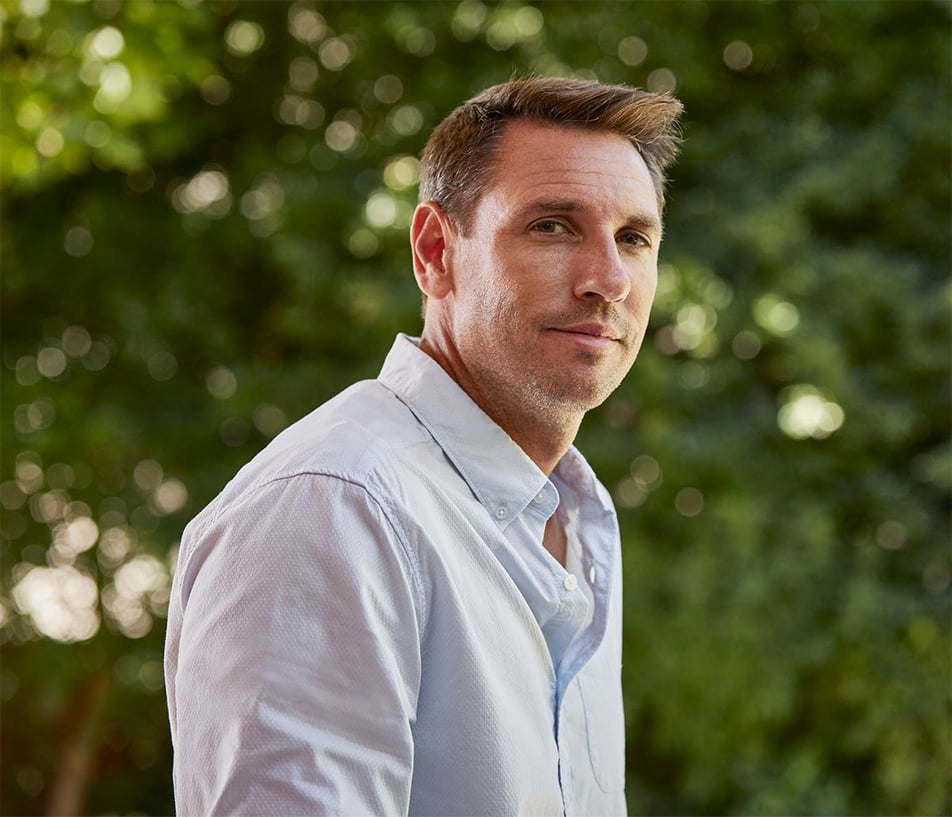



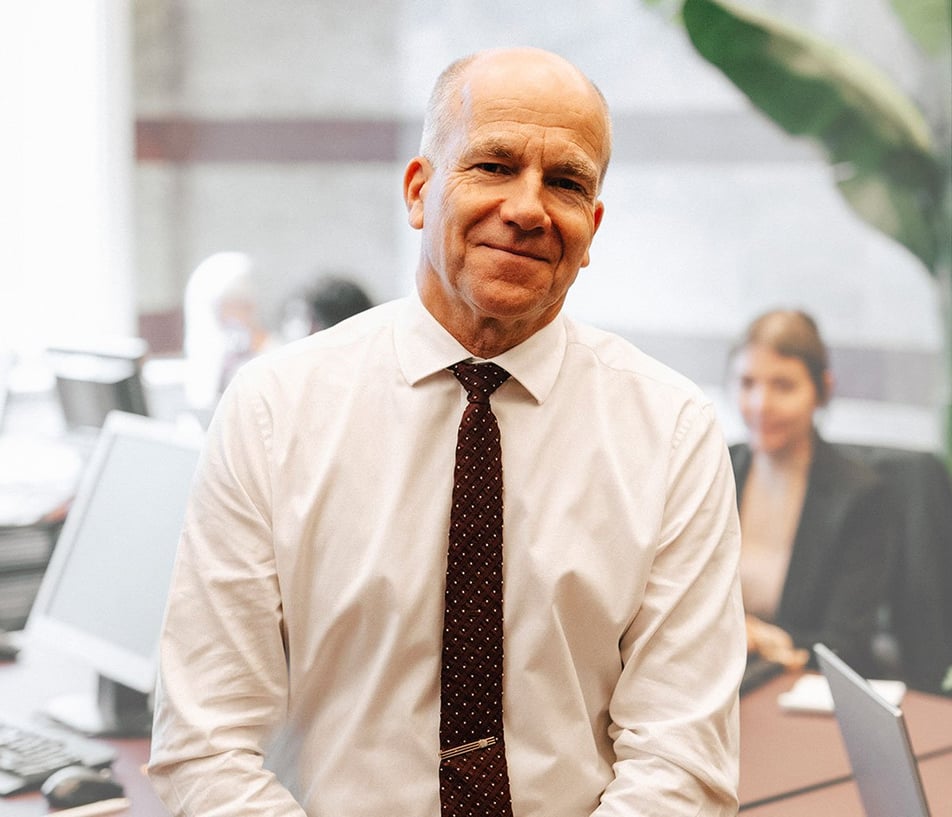
.png?width=400&height=400&name=CT-How_Can_We_Help-22_july_NewGraphic_b(small).png)

.png?width=1386&height=1224&name=2025%20Legal500%20Elite%20Boutique%20Award%20(Badge).png)
.png?width=1386&height=1224&name=ITR%20Finalist%20Practice%20Leader%20of%20Year%20Peter%20Aprile%202024%20(Badge).png)
.png?width=1386&height=1224&name=2025%20Legal500%20Leading%20Firm%20Client%20Satisfaction%20Award%20(Badge).png)
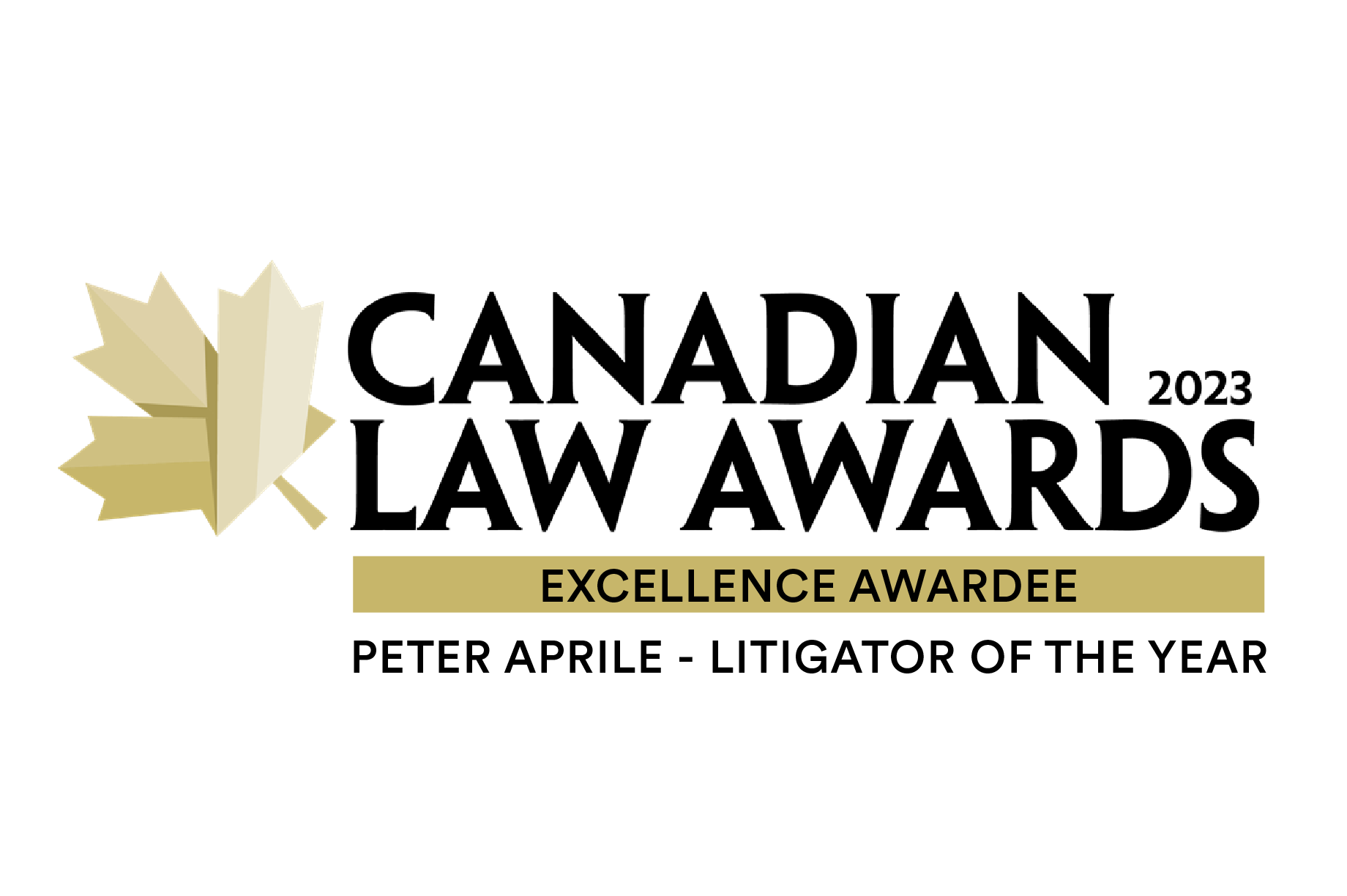
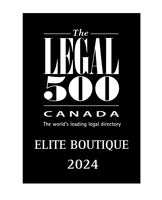

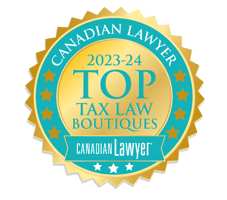
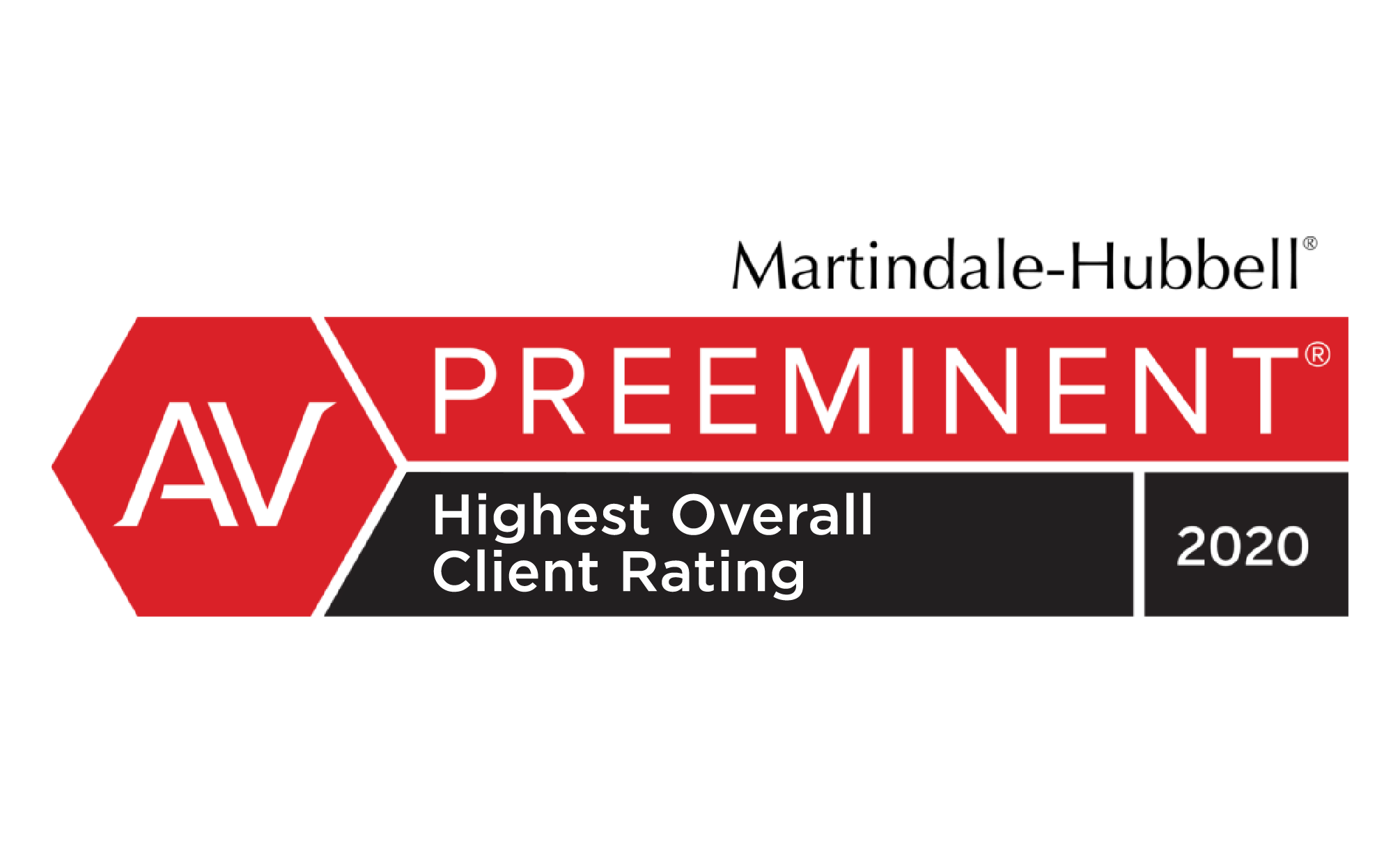
.png?width=1386&height=1224&name=ITR%20Tax%20Innovator%20Finalist%202024%20Award%20(Badge).png)
